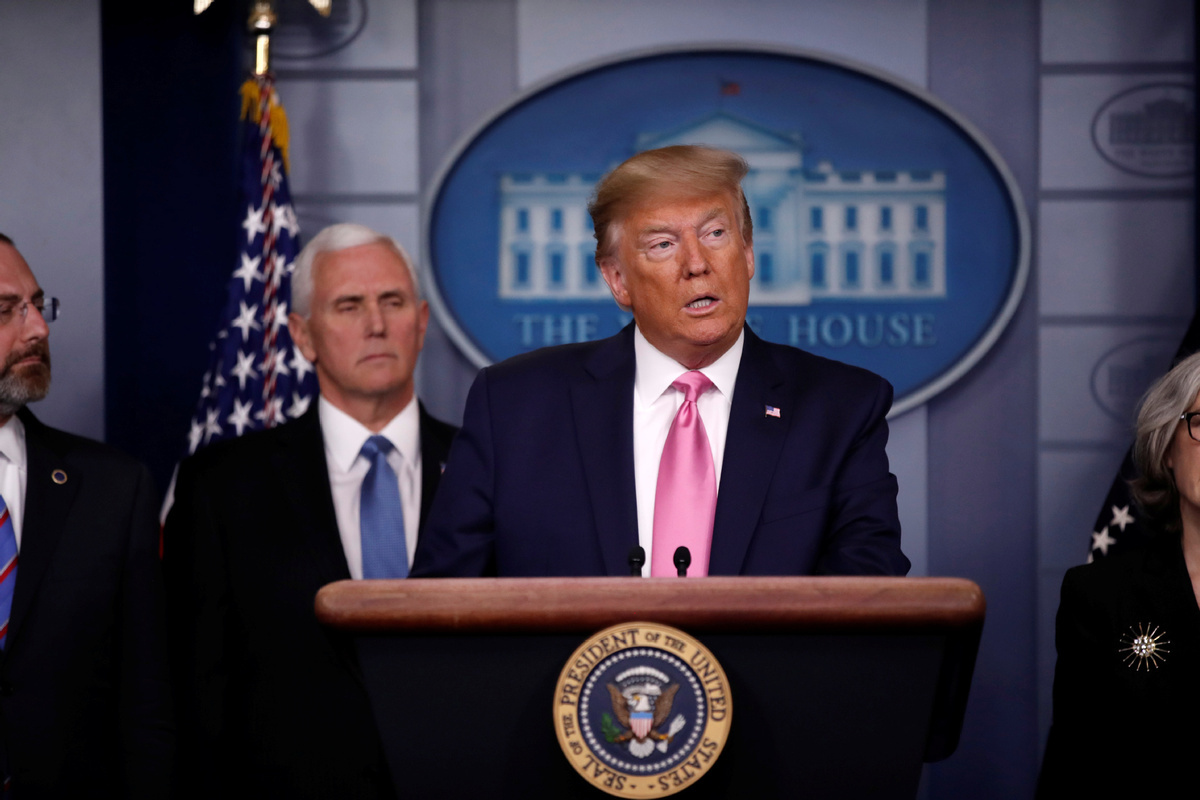US needs to step up COVID-19 response


The US economy is the largest in the world, and of huge economic and financial importance. There is an old saying, "When America sneezes, the world catches a cold." The US has enormous economic demand, a crucial market for Asia to sell to and a population of 331 million people, with a per-capita GDP over six times that of China. While it is hugely important that the Chinese economy is restarting and contributing to global supply chains, it is equally important the American economy remains robust.
President Donald Trump is counting on this as his ace in the hole for his re-election campaign, and until recently it was looking good, with virtually full employment and stock markets at record highs. Enter the coronavirus. Trump has been downplaying the virus’ threat to the US until recently, even claiming it was being overhyped by Democrats as a hoax and it might miraculously disappear in warmer weather. He noted no one had died in the US, but sadly that is no longer true. Serious predictions have been in short supply, but US health officials have certainly sounded a lot more concerned than their president. A senior adviser warned an effective vaccine is a year to 18 months away, while Trump says there could be one in two months.
The UK has announced some worst-case scenarios, with the official position being that the number infected could reach 80 percent of the UK population, though highly likely to be much lower, and around 1 percent are predicted to die. Sometimes absolute numbers are needed: The Office of National Statistics puts the UK population at just over 66 million, so half a million could conceivably die in a horrendous extreme scenario. Apply the same predictions to the USA and over 2 and a half million would be likely to die. Will the US plan for such contingencies, or prop up the stock market and downplay the risks? The most encouraging evidence comes from China's success in containing the virus’s spread, so with China’s population of 1.4 billion the numbers infected are still below 100,000 (an early projected number by some health experts). That is a very small proportion of China's population and hugely reassuring.
However, the WHO fully recognizes China bought other countries time to prepare for the contagion. This time would be best used for developing and mass-producing testing kits and protective clothing, masks and equipment for medical workers. Arguably Japan and South Korea have joined those efforts as unwilling case studies, but their own lockdowns and precautions will help contain the spread globally. Numbers of cases detected are bound to rise in those countries, as widespread testing takes place. China is capable of over 1.5 million tests a week, and South Korea has tested 65,000 and aims to test 200,000 at-risk people. A report on this by the US-based Science Magazine, one of the world's top academic journals, makes for worrying reading on the US response. At the end of February, fewer than 500 tests for Covid-19 had been carried out in the US by the CDC according to official figures, mainly due to a problem of defective test kits reported to have lost two weeks. With over 100 cases now reported there and a cluster of 9 deaths in the Seattle area, experts agree the virus was almost certainly present undetected earlier because of the short period in which deaths occurred. We only need to look to the results in Italy to see what can happen when the virus spreads undetected.
Thankfully, individual US state health agencies are belatedly starting their own testing. It is hard to believe the numbers will not jump significantly.
The US administration must follow the lessons from China and other Asian countries now and significantly increase virus protection and detection, or the world economy will get sick. Political issues need to be put aside and maximum cooperation must be the mantra.
Colin Speakman is an economist and an international educator with CAPA: The Global Education Network.
The opinions expressed here are those of the writer and do not necessarily represent the views of China Daily and China Daily website.

































